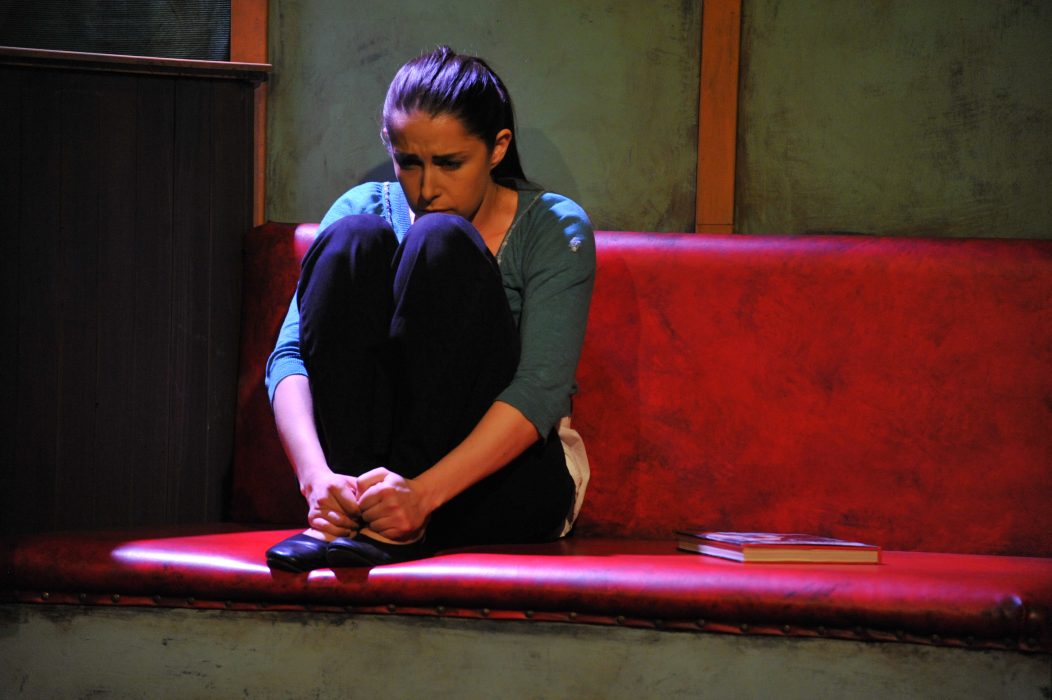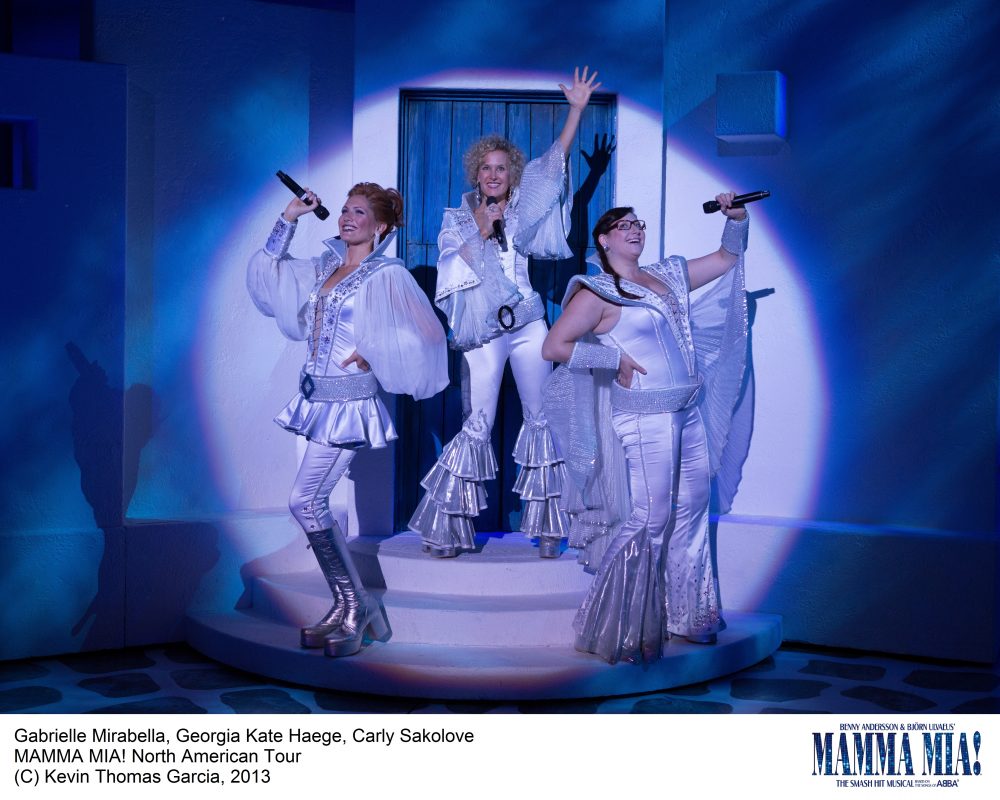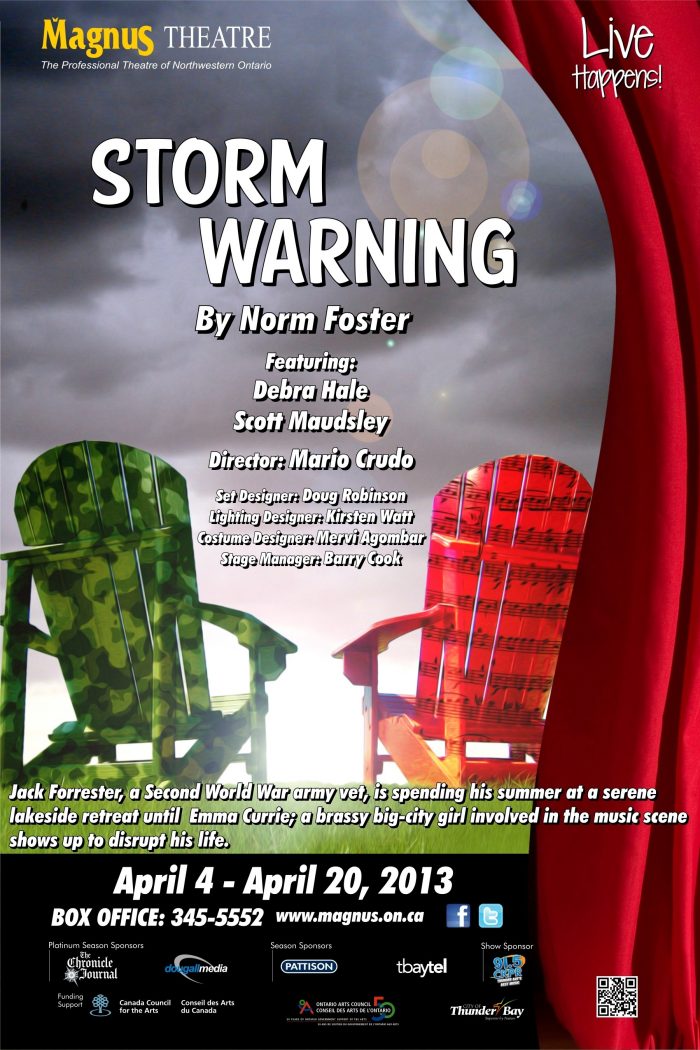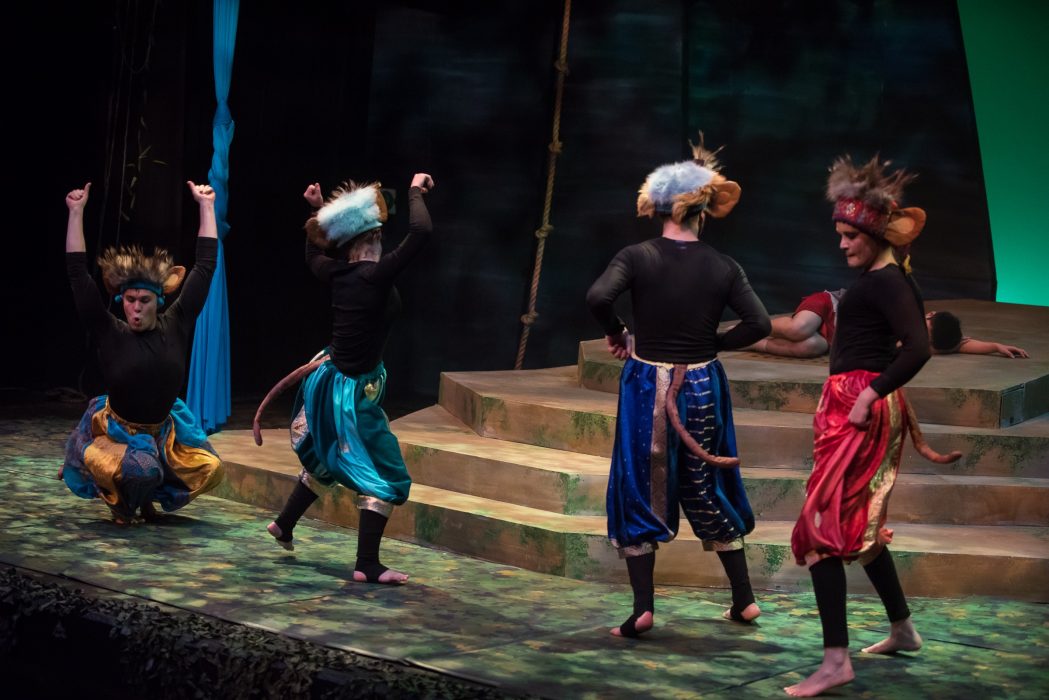Story By Kyle Polyuko and Photos By Bruce Barrett
Gwaandak Theatre’s production of Café Daughter, currently being presented by Magnus Theatre, is compelling, resonant, and exquisitely beautiful. It has been billed as a one-woman memory play but to do so is giving it a limiting description and, almost, a disservice to the entrancing consummation of a gifted actress as she exposes herself and the audience to a commanding journey of reflection.
The actress is Paula-Jean (PJ) Prudat and her feat on the Magnus stage is so delicate it could almost be underestimated if it weren’t for the nearly overwhelming scope of emotional responses she evoked from the rapt audience. Prudat tells the story of Yvette Wong and her childhood from the viewpoint of a backwards looking adult. The nine-year old Yvette who is first recalled is an energetic and idealistic young girl, eager to please and to explore, though unsure of many things in her parents’ lives. Her mother, Katherine, is from a Cree community while father, Charlie, hails from China. Yvette faces consistent discouragement from others who do not believe in her. To propel her daughter towards a secure future, Katherine demands of Yvette that she never reveal to anyone that she is part Cree.
Prudat deftly reveals no fewer than fifteen characters as she recalls Yvette’s life through to adulthood and she precisely and genuinely vocalizes numerous affectations and accents, including Chinese and Cree. It is her genuineness that quickly eases any self-awareness of stereotyping with which the audience may find itself confronted. There is no doubt that Prudat is enjoying herself on stage as she transitions fluidly, linking moments of despair with those of great humour and nearly every emotion in between.
Café Daughter is directed superbly by Yvette Nolan, and skillfully written by Kenneth T. Williams and suggested by the life of his distant cousin, Senator Lillian Dyk, her story is one that is a powerful testimonial itself. Perhaps, though, the true power that lay within Café Daughter is how it can rally the memory within almost anyone of us a time when we denied – by choice, force, or necessity – a part of who we truly are. Universally it is a hurt, but the pain felt is unique to each.
[nggallery id=20]















